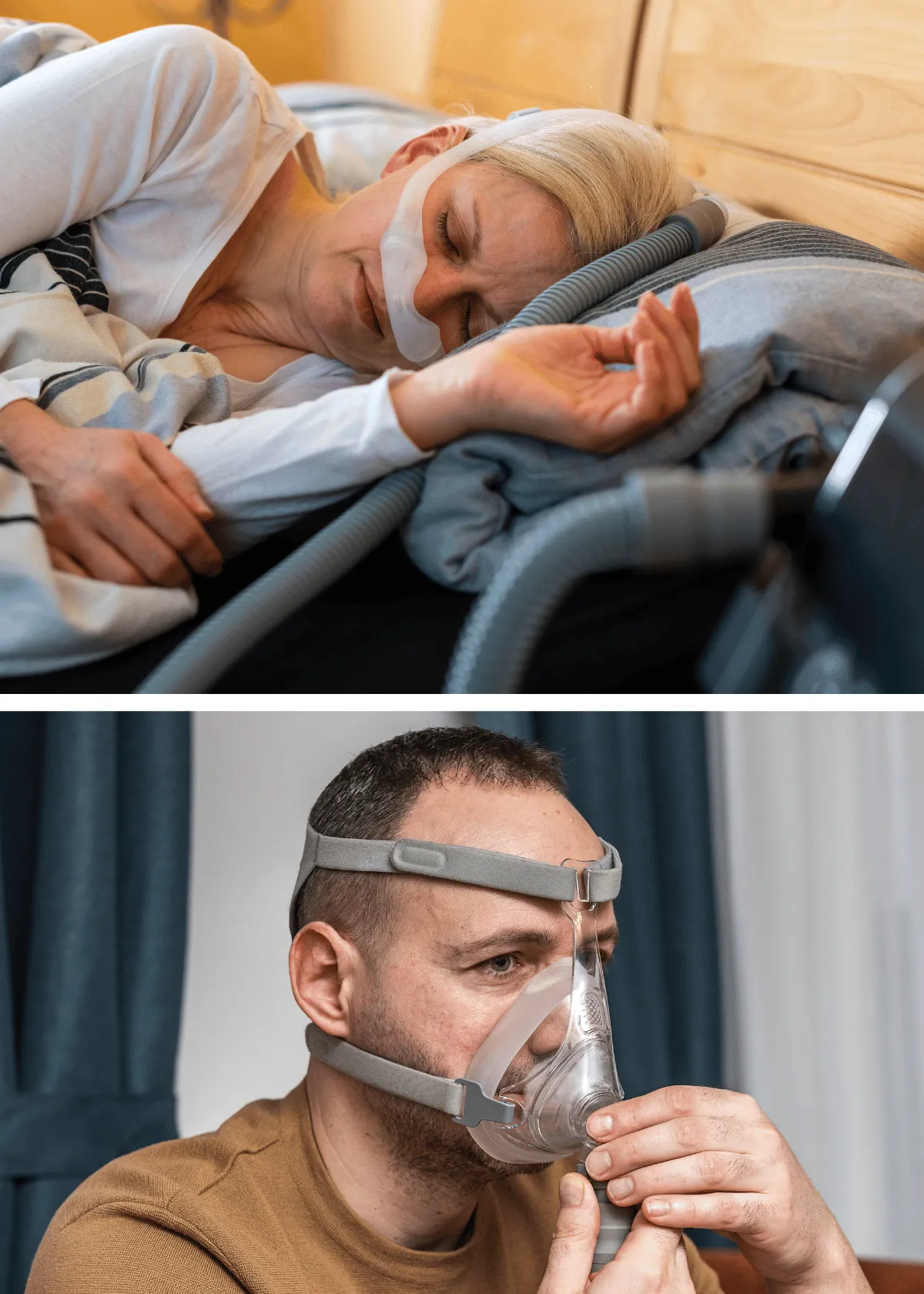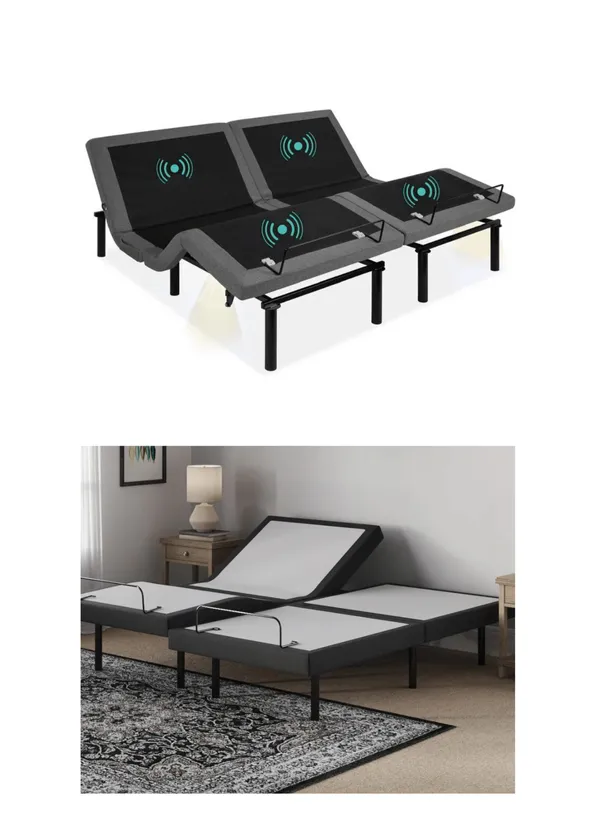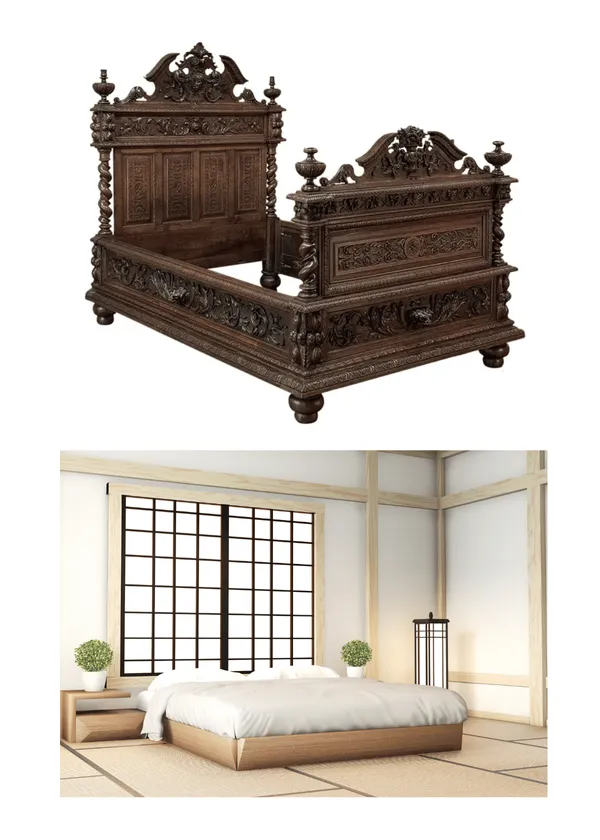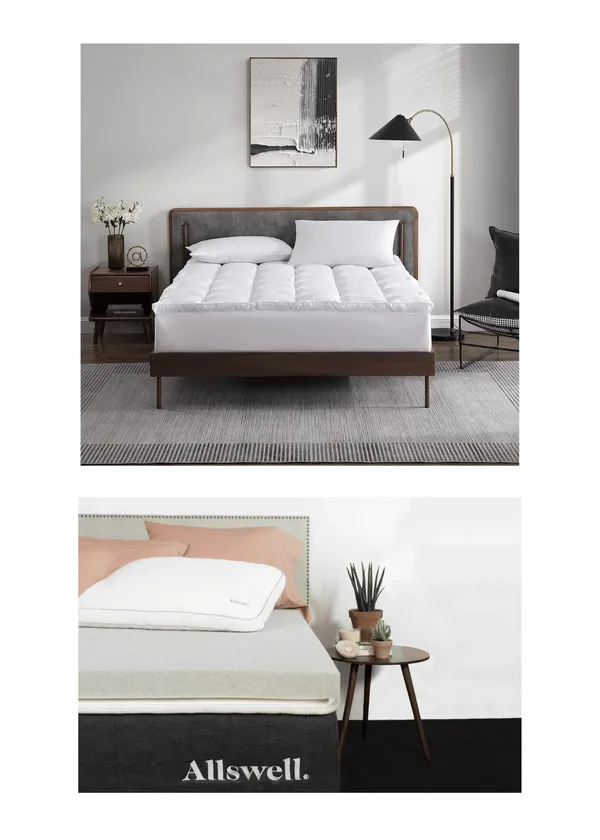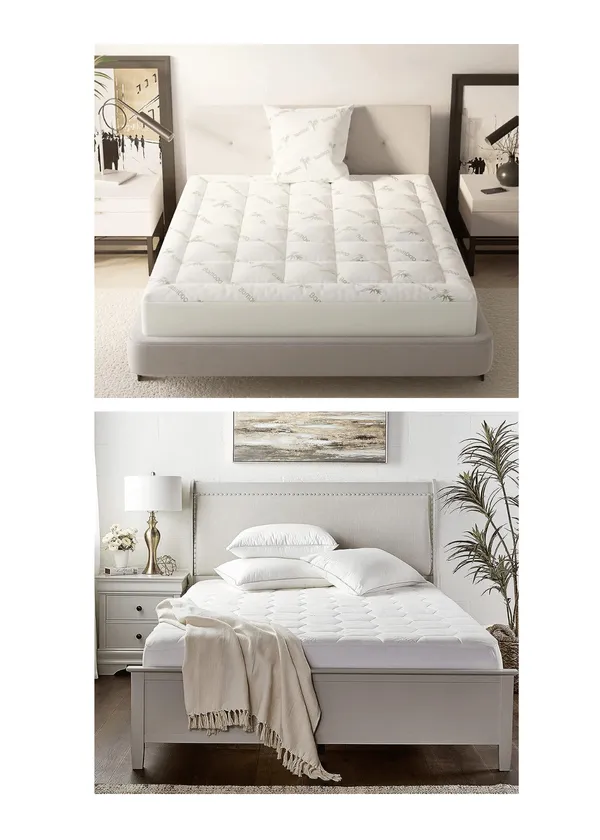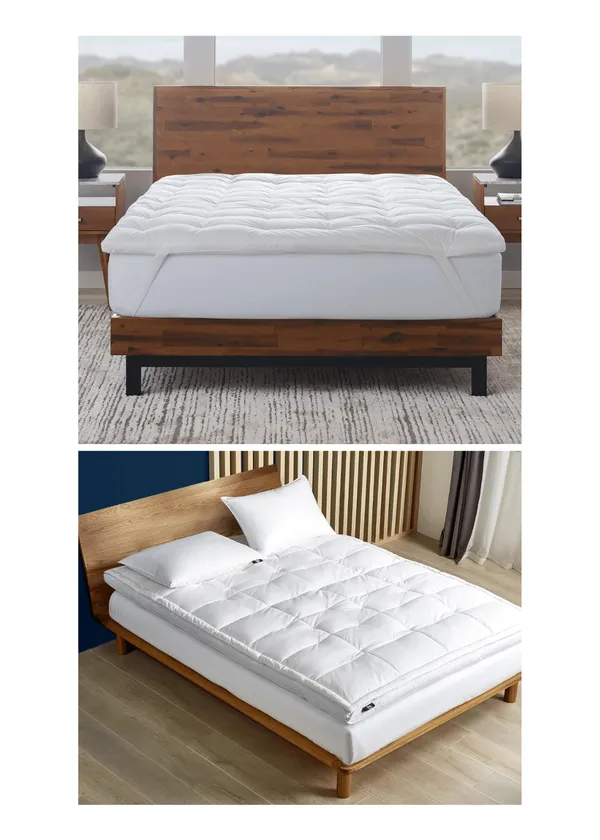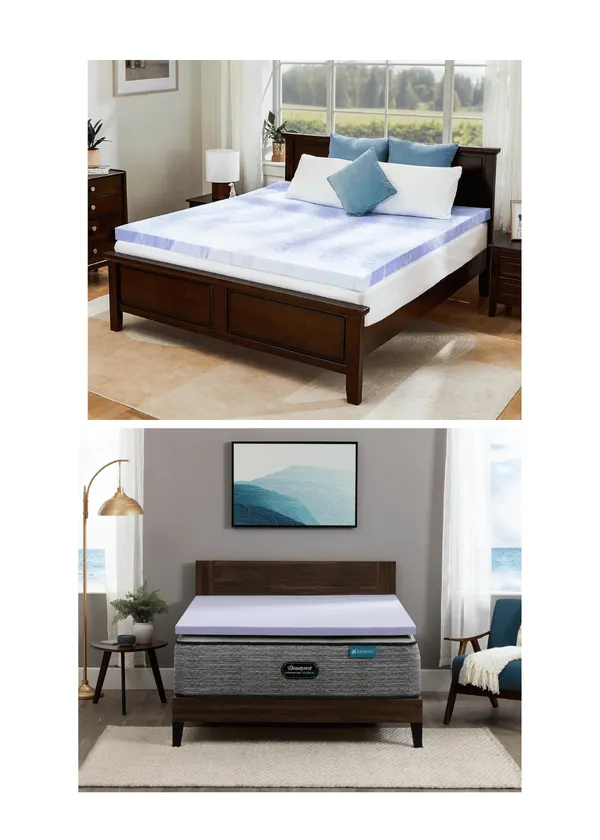(Last Update: 02/26/2024)
This content is created with integrity and impartiality; we do not receive direct compensation for this review. See our Mission and Core Values here.
Welcome to the world of sleep apnea management, where Joe Rogan's advocacy for better sleep shines through.
Sleep apnea, a condition affecting millions worldwide, disrupts sleep patterns and poses health risks.
Joe Rogan's experience with sleep apnea has led him to champion effective solutions, notably using mouthguards.
These innovative devices are crucial in managing sleep apnea by keeping airways open during sleep.
Join us as we delve into the science behind sleep apnea and explore how J. Rogan's mouthguard offers a path to restful nights and improved well-being.
Exploring the Mechanics of Sleep Apnea
Let's shed light on sleep disorders like sleep apnea, crucial for early detection and management. By understanding the condition's complexities and risks, individuals can ensure they have successfully addressed sleep apnea and improve overall sleep experience and health.
Sleep apnea is a prevalent sleep disorder defined by pauses in shallow breaths during sleep. These interruptions in breathing can occur multiple times at night, leading to fragmented sleep and reduced blood oxygen levels. Several types of sleep apnea include obstructive sleep apnea (OSA), central sleep apnea (CSA), and mixed sleep apnea.

Obstructive sleep apnea (OSA):
In the most common form, the airway becomes partially or completely blocked during sleep, typically due to relaxed throat muscles or excess tissue. This obstruction results in breathing cessation or shallow breathing episodes, leading to disrupted sleep patterns and other health issues and complications.
Central sleep apnea (CSA)
Central sleep apnea (CSA) is a sleep disorder where breathing pauses occur during sleep due to the brain's inability to send adequate signals to the muscles that control breathing. Unlike obstructive sleep apnea, which involves airway blockage, CSA stems from a dysfunction in the brain's respiratory control center.
Health Impacts of Sleep Apnea:
Sleep apnea enhances high blood pressure and cardiovascular issues if left untreated. It disrupts sleep, causing poor sleep quality and health problems. Heart disease risk escalates with untreated sleep apnea, emphasizing the importance of seeking effective treatments. Recognizing the signs and addressing health problems early can prevent serious complications in the future.
Impact on Daily Life and Performance:
Sleep apnea affects concentration and performance. Muscle tissue is compromised, hindering peak performance. Recognizing the positive effects of treatment can significantly improve daily life quality. Understanding key points about sleep apnea's impact empowers peole to make informed decisions about their health and well-being.
How Mouthguards Work to Alleviate Sleep Apnea Symptoms
Mouthguards, also known as oral appliances or mandibular advancement devices, are one of the primary non-invasive treatments for obstructive sleep disorder.
By holding the lower jaw forward, mouthguards help keep the airway open and reduce the likelihood of airway obstruction and breathing pauses. This improves airflow and oxygenation during sleep, reducing sleep disruptions and refreshing sleep quality.
Research and Studies Supporting Mouthguard Efficacy
Bryan Keropian, known for his experience with sleep apnea and dedication to addressing health issues related to poor sleep, is closely associated with The Center for Snoring and CPAP Intolerance, a leading sleep dentistry facility in Tarzana, CA.
At the center, Keropian specializes in advocating for patients' rights and promoting effective solutions for sleep apnea, including snoring mouthpieces. He educates patients on how the mouthpiece works to relieve sleep apnea symptoms and improve overall sleep quality.
Understanding sleep apnea involves recognizing its risk factors and implications. One such risk factor is having more muscle tissue in the throat can contribute to airway obstruction during sleep.
Research findings indicate that mouthguards can significantly decrease the repetition and severity of breathing pauses during the experience with sleep apnea, improve oxygen saturation levels, and alleviate daytime fatigue and sleepiness.
Moreover, mouthguards are well-tolerated by patients and are regularly selected over continuous positive airway pressure (CPAP) machine-use therapy, the standard treatment for sleep apnea. Their non-invasive nature, ease of use, and effectiveness in improving restfulness make mouthguards valuable for individuals seeking relief from sleep apnea symptoms.

Is a Sleep Apnea Mouthguard Right for You?
Sleep apnea mouthguards offer an effective, non-invasive treatment option for individuals diagnosed with obstructive sleep apnea (OSA) or experiencing loud snoring, daytime fatigue, and frequent awakenings during sleep. However, determining whether a sleep apnea mouthguard is the right solution requires careful consideration of various factors.
Discuss who is a good candidate.
Good candidates for sleep apnea mouthguards typically include individuals diagnosed with mild to moderate sleep-disordered breathing issues who prefer a non-invasive treatment or have difficulty tolerating continuous positive airway pressure (CPAP) therapy.
When to consult a sleep specialist
Consulting a sleep specialist is crucial for proper diagnosis and treatment planning before considering a sleep apnea mouthguard. Suppose you experience symptoms like loud snoring, excessive daytime sleepiness, or gasping for air during your battle with sleep apnea.
In that case, it's essential to undergo a sleep study (polysomnography) to assess the severity and type of sleep apnea. A sleep specialist can interpret the sleep study results, diagnose sleep apnea, and recommend appropriate treatment options based on individual needs and preferences.
Potential side effects of mouthguard use
While sleep apnea mouthguards are generally well-tolerated and effective for many individuals, they may cause minor side effects initially, such as jaw discomfort, excessive salivation, or dry mouth.
These side effects diminish as the user becomes accustomed to wearing the mouthguard. However, if side effects persist or worsen, it's important to consult a dentist or treat sleep apnea specialist for adjustments or alternative treatment options.
Alternatives to Mouthguards for Sleep Apnea
While mouthguards effectively manage sleep apnea, alternative treatment options are available for individuals who may prefer different approaches or require additional interventions to address their symptoms.
CPAP Machines
Continuous positive airway pressure (CPAP) machines are a commonly prescribed treatment for moderate to severe obstructive sleep apnea.
A CPAP machine therapy requires wearing a mask connected to a machine that constantly fluxes pressurized air into the airway, preventing collapse and maintaining open air passages during sleep. A CPAP machine can also effectively reduce snoring, improve oxygen levels, and promote restful sleep for individuals with sleep apnea.
Lifestyle Changes
Implementing lifestyle changes can also play a significant role in managing sleep apnea symptoms and improving overall sleep quality.
Losing weight through dietary changes and physical activity can assist in achieving desired results. Reduce excess tissue in the throat and lower the other risk factors of airway obstruction during sleep. Avoiding alcohol, sedatives, and copious meals before bedtime can also minimize muscle relaxation and decrease the likelihood of snoring and sleep disruptions.

Choosing the Right Mouthguard for Your Needs
Joe Rogan's battle has shown that selecting the right mouthguard is crucial for effectively managing sleep apnea and ensuring optimal comfort and efficacy during use.
Consideration of various factors, including design, fit, and customization options, can help individuals make informed decisions tailored to their specific needs and preferences.
Factors to Consider When Selecting a Mouthguard
Several factors should be considered when choosing a mouthguard for sleep apnea treatment. These include the severity of sleep apnea symptoms, individual anatomical considerations such as jaw size and dental structure, comfort preferences, and potential side effects.
Types of Mouthguards Available in the Market
Several types of mouthguards are available in the market, each with its unique design and mechanism of action. A Mandibular advancement device (MADs) IS the most common type of mouthguard used for sleep apnea treatment. These devices gently reposition the lower jaw during sleep, preventing airway obstruction and reducing snoring.
Tongue-retaining devices (TRDs) are another type of mouthguard that holds the tongue forward to keep the airway open. TRDs may be preferred by individuals who have difficulty tolerating MADs or experience jaw discomfort with traditional mouthguards.
Customization Options and Personalized Fit
Customization options play a key role in ensuring the effectiveness and comfort of a mouthguard for sleep apnea treatment. Many mouthguards can be custom-fitted by a dentist or sleep specialist to provide a personalized fit tailored to the individual's jaw structure and bite alignment.
Custom-fitted mouthguards offer superior comfort and stability compared to over-the-counter or boil-and-bite mouthguards, reducing the risk of discomfort or displacement during sleep.

Benefits of Using Joe Rogan's Mouthguard
Expert Perspectives and Solutions:
Sleep apnea Joe Rogan advocates for has shed light on effective treatments. Rhonda Patrick offers expert insights into sleep apnea and its management in the famous podcaster platform. They stress the importance of proper signals from healthcare professionals. Even a few seconds of interrupted breathing during sleep can signify sleep apnea, necessitating proactive measures. UFC commentators have openly spoken about their experiences.
Improved Sleep Quality and Duration
Rhonda Patrick, a prominent figure in the field of health and wellness, has appeared multiple times on J. Rogan's podcast, "The Joe Rogan Experience." During these episodes, they discussed various health-related topics, including sleep apnea.
J. Rogan's influence on UFC commentators is profound, as his expertise and candid discussions have brought awareness to various health topics, including sleep apnea. His advocacy for better sleep health resonates within the UFC community, prompting commentators to prioritize their well-being.
Joe Rogan experience with a mouthguard has significantly improved sleep experience and duration for individuals with sleep apnea. The mouthguard promotes uninterrupted and restorative sleep cycles by keeping the airway open and reducing breathing pauses or snoring during various sleep stages.
Reduction in Snoring and Sleep Disruptions
Snoring is a standard symptom of obstructive sleep disorder and can disrupt the individual's sleep cycle and bed partner's rest. J. Rogan's mouthguard helps address snoring by preventing airway collapse and reducing the vibration of soft tissues in the throat.
Snoring mouthpieces offer relief for sleep apnea sufferers by keeping airways open. Regular use can reduce snoring problems and improve sleep quality, leading to better health outcomes. Understanding how the mouthpiece works is essential for managing sleep apnea effectively.
Enhanced Daytime Alertness and Cognitive Function
One of the most noticeable benefits of using Joe Rogan's mouthguard is the enhancement of daytime alertness and cognitive function. The mouthguard helps individuals feel more alert, focused, and productive during waking hours by effectively managing sleep apnea and promoting sound sleep quality.
Reduced daytime fatigue and sleepiness contribute to improved concentration, memory, and overall cognitive performance throughout the day.
Where to Purchase Joe Rogan's Recommended Mouthguards
Have you heard about the sleep apnea Joe Rogan faced and overcame? The podcaster's advocacy for a better understanding sleep apnea sleep apnea has led him to endorse several mouthguard products designed to alleviate sleep apnea symptoms and improve overall sleep quality. These recommended mouthguards have gained popularity among individuals seeking effective, non-invasive treatment options for sleep apnea.
Overview of Mouthguards Endorsed by Joe Rogan
Joe Rogan discusses mouthguards, including various mandibular and tongue-retaining devices (TRDs) known for their efficacy in managing sleep apnea. These mouthguards are carefully selected based on their design, functionality, and user satisfaction, making them reliable options for individuals seeking relief from sleep apnea symptoms.
Features, Benefits, and User Reviews of Recommended Products
Each of Joe Rogan's experiences with mouthguards has shown its unique features and benefits to address specific serious sleep disorders and apnea concerns.
These features may include adjustable settings for jaw advancement, comfortable materials, and customizable fit options. User reviews and testimonials highlight the effectiveness of these mouthguards in reducing snoring, improving sleep quality, and enhancing overall well-being.
J. Rogan's recommended mouthguards can be purchased from various sources, including dental clinics, sleep centers, and reputable online retailers.
You should consult a dentist or sleep specialist before purchasing a mouthguard to ensure it fits and is appropriate for individual needs. Also, caution should be exercised when considering DIY mouthguard kits or purchasing from unverified online sources to avoid potential safety and efficacy concerns.
Role of Dentists and Sleep Specialists
Dentists and sleep specialists are crucial in guiding individuals toward appropriate mouthguard options for addressing sleep apnea with proper fitting and usage. They can assess the severity of sleep apnea symptoms, recommend suitable mouthguard products, and provide ongoing support and adjustments to optimize treatment outcomes.
Reputable Online Resources (Emphasize Caution Before DIY)
While online resources may provide valuable information about sleep apnea and mouthguard options, individuals should exercise caution by verifying the credibility of sources before making purchasing decisions. Reputable websites and online forums can offer insights and user experiences.

Tips for Maximizing the Effectiveness of Your Mouthguard
To ensure optimal effectiveness and comfort when using a mouthguard for sleep apnea treatment, it's important to incorporate proper maintenance techniques and integrate mouthguard use into your bedtime routine.
Proper Maintenance and Cleaning Techniques
Regular cleaning and maintenance are best for preserving the effectiveness and hygiene of your mouthguard. To remove debris and bacteria, please rinse your mouthguard with cool water before and after each use.
Use soft toothbrushes with mild soap to clean the mouthguard, avoiding abrasive cleaners or hot water that may damage the material. Store your mouthguard in a ventilated and clean container when not in use to avoid bacterial growth and maintain its shape.
Incorporating Mouthguard Use into Your Bedtime Routine
Consistency is key when using a mouthguard for sleep apnea treatment. Incorporate wearing your mouthguard into your bedtime routine to ensure you use it uninterrupted throughout the good night's rest.
Please place your mouthguard near your bedside as a reminder to wear it before sleep. Establishing a consistent bedtime schedule can signal your body that it's time to relax and prepare for sleep, enhancing the effectiveness of your mouthguard in managing sleep apnea symptoms.
Addressing Common Challenges and Adjustments
It's common to experience initial discomfort or challenges when using a mouthguard for the first time. If you encounter issues such as jaw pain, excessive salivation, or difficulty sleeping with the mouthguard, don't hesitate to consult your dentist or sleep specialist for guidance.
Lifestyle Modifications for Addressing Sleep Apnea
In addition to using mouthguards and other medical interventions, certain lifestyle modifications can significantly improve sleep quality and alleviate sleep apnea symptoms. By adopting healthy habits and creating a conducive sleep environment, individuals can enhance their overall well-being and lessen the impact of sleep apnea on their daily lives.
Dietary and Exercise Recommendations for Better Sleep
Maintaining a balanced diet and consistent exercise can promote refreshing sleep quality and help manage sleep apnea symptoms.
A rich diet of vegetables, fruits, lean proteins, and whole grains while limiting caffeine and alcohol intake can support the best sleep. Regular physical activity, like cycling, brisk walking, or yoga, can improve sleep patterns and overall health and fitness.
Stress Management Techniques and Relaxation Practices
Chronic stress and anxiety can exacerbate sleep apnea symptoms and disrupt sleep patterns. Stress management techniques and relaxation practices can reduce common symptoms, help individuals unwind, and prepare for restful sleep.
Best Techniques: Deep breathing exercises, meditation, progressive muscle relaxation, and mindfulness can promote relaxation while reducing stress levels and allowing a more peaceful transition into sleep.
Creating a Sleep-friendly environment for Optimal Rest
A sleep-friendly environment is essential for optimizing restorative sleep and managing sleep apnea symptoms. Please ensure your bedroom is quiet, dark, and cool, with comfortable bedding and minimal distractions.
CONCLUSION:
Joe Rogan's battle with sleep apnea exemplifies resilience and determination in adversity.
Users can reclaim restful nights and rejuvenated mornings by experiencing better sleep quality, reduced snoring, and enhanced daytime alertness.
You can take action towards enhancing sleep health and overall well-being. J. Rogan's continued advocacy for sleep health and awareness underscores the importance of prioritizing restorative sleep for optimal health and vitality.
Join the journey to refreshing sleep with Joe Rogan's Sleep Apnea Mouthguard today.
Frequently Asked Questions:
What Are the Health Implications of Sleep Apnea?
Sleep apnea, often treated with a snoring mouthpiece, disrupts REM sleep and affects the cardiovascular system. It leads to difficulty concentrating and impacts heart rate variability.
Shedding light on its implications highlights the huge difference proper treatment, like a mouthpiece solution, can make. Consulting a healthcare professional, considering dietary choices, and listening to insights from a UFC commentator are crucial steps in managing this condition.
Is there a mouthguard that helps with sleep apnea?
Yes! Oral appliances called sleep apnea mouthguards are designed to keep your airway open during sleep. Mandibular advancement devices (MADs) gently reposition the jaw, while tongue-retaining devices hold the tongue forward. These may be effective for mild to moderate sleep apnea, but always consult a sleep specialist for proper diagnosis and treatment.
Do dentists make sleep apnea mouthpieces?
Absolutely! While general dentists might offer simple over-the-counter options, it's best to consult a dentist specializing in dental sleep medicine for a custom-fit sleep apnea mouthpiece. They'll thoroughly assess your condition, fit the device perfectly, and monitor your progress to ensure optimal effectiveness.

